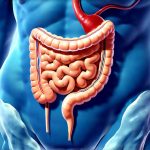The connection between digestive discomfort and fatigue is remarkably common, yet often underestimated. Many people experience a frustrating cycle where a rumbling stomach, bloating, or other gastrointestinal symptoms are accompanied by debilitating tiredness. This isn’t simply coincidence; there’s a complex interplay between our gut and overall energy levels that explains why these two seemingly disparate experiences frequently occur together. It’s important to understand this relationship not as separate issues, but as interconnected components of a larger physiological system – one where the health of your digestive tract significantly influences your vitality and well-being.
Frequently, we attribute tiredness to lack of sleep, stress, or overwork. While these are undeniably significant factors, they don’t always tell the whole story. Digestive issues can drain energy reserves in ways that are often overlooked. The body expends considerable resources – nutrients, hydration, immune function – trying to process food, and when this process is compromised due to inflammation, malabsorption, or imbalances in gut bacteria, it creates a substantial energetic burden. This leads to feelings of exhaustion even if sleep seems adequate. Furthermore, the chronic stress associated with persistent digestive discomfort can exacerbate fatigue, creating a vicious cycle that’s difficult to break. Understanding how hormonal fluctuations might contribute is also helpful.
The Gut-Brain Axis and Energy Regulation
The intricate link between digestion and tiredness hinges on what scientists call the gut-brain axis. This isn’t merely a metaphorical connection; it’s a bidirectional communication network linking the gastrointestinal tract with the central nervous system. This pathway involves neural, hormonal, and immunological signaling. Essentially, your gut “talks” to your brain, and your brain “talks” back, constantly influencing each other’s functions. Disruptions in this axis can have profound effects on both physical and mental energy levels.
When digestive processes are impaired – for example, due to food sensitivities, irritable bowel syndrome (IBS), or inflammatory bowel disease (IBD) – it triggers an increased stress response in the body. This isn’t just psychological stress; it’s a physiological activation of the hypothalamic-pituitary-adrenal (HPA) axis, leading to cortisol release. Chronically elevated cortisol levels can disrupt sleep patterns, deplete energy reserves, and contribute to feelings of fatigue. In addition, inflammation within the gut is sensed by the immune system which also contributes to overall tiredness. Dietary changes may be necessary if you experience weekend diet breaks that impact digestion.
The gut also plays a vital role in nutrient absorption. If you’re struggling with digestive discomfort, your body may not be efficiently absorbing essential vitamins and minerals – like iron, B12, or magnesium – which are crucial for energy production. This deficiency directly leads to fatigue, even if you’re consuming a seemingly balanced diet. The gut microbiome—the trillions of bacteria residing in our intestines—further complicates this picture. An imbalance in these bacteria (dysbiosis) can impair nutrient absorption, increase inflammation, and disrupt the gut-brain axis, all contributing to fatigue. It’s important to consider digestive diagnostics during routine checkups.
Inflammatory Processes & Fatigue
Inflammation is a key player in both digestive discomfort and tiredness. Chronic low-grade inflammation within the gut is often present in conditions like IBS, IBD, or even food sensitivities. This constant inflammatory state doesn’t just affect your digestive system; it affects your entire body. The immune system is constantly working to combat this inflammation, diverting energy away from other essential functions.
- Inflammatory cytokines (signaling molecules) released during gut inflammation can cross the blood-brain barrier and directly influence brain function, leading to feelings of fatigue, cognitive impairment (“brain fog”), and even depression.
- Leaky gut syndrome – where the intestinal lining becomes permeable allowing undigested food particles and toxins to enter the bloodstream – further exacerbates systemic inflammation. This triggers an immune response that demands significant energy expenditure, contributing to tiredness.
- Dietary choices can significantly impact gut inflammation. Diets high in processed foods, sugar, and unhealthy fats tend to promote inflammation, while diets rich in fiber, antioxidants, and anti-inflammatory nutrients (like omega-3 fatty acids) can help reduce it. Consider how high-fat holiday meals might impact inflammation levels.
Nutrient Malabsorption & Energy Depletion
As mentioned earlier, efficient nutrient absorption is critical for energy production. Digestive issues frequently impair this process, leading to deficiencies that directly contribute to fatigue. Conditions like celiac disease, Crohn’s disease, or even lactose intolerance can significantly hinder the body’s ability to absorb essential nutrients. Even milder forms of digestive discomfort – such as bloating and gas – can interfere with nutrient uptake.
Here’s how specific nutrient deficiencies can manifest as tiredness:
1. Iron deficiency: Leads to anemia, causing fatigue, weakness, and shortness of breath.
2. Vitamin B12 deficiency: Essential for nerve function and red blood cell production; deficiency causes fatigue, neurological symptoms, and cognitive impairment.
3. Magnesium deficiency: Involved in over 300 enzymatic reactions in the body, including energy production; deficiency causes muscle weakness, fatigue, and irritability.
4. Vitamin D deficiency: Linked to reduced immune function and increased inflammation which contribute to tiredness.
Addressing these deficiencies requires not only supplementation (under a healthcare professional’s guidance) but also improving digestive health to enhance nutrient absorption. This may involve dietary changes, addressing food sensitivities, or supporting the gut microbiome. Avoiding high-fiber grains might be a starting point for some people.
The Role of Gut Microbiome Imbalance
The gut microbiome is a complex ecosystem of trillions of bacteria, fungi, viruses, and other microorganisms that reside in our digestive tract. These microbes play a crucial role in digestion, nutrient absorption, immune function, and even mental health. An imbalance in this microbial community – dysbiosis – can have far-reaching consequences for energy levels.
Dysbiosis can result from various factors including:
– Antibiotic use (which kills both beneficial and harmful bacteria)
– Poor diet (high in processed foods, sugar, and low in fiber)
– Chronic stress
– Environmental toxins
When the gut microbiome is imbalanced, it can lead to increased inflammation, impaired nutrient absorption, and a disrupted gut-brain axis. Specifically:
* Certain types of bacteria produce metabolites that influence energy metabolism. An imbalance can affect how efficiently your body converts food into usable energy.
* Dysbiosis can increase intestinal permeability (“leaky gut”), leading to systemic inflammation and fatigue.
* Imbalances in the microbiome impact neurotransmitter production (like serotonin), which plays a role in mood regulation and sleep, both impacting energy levels. If you find yourself experiencing discomfort after skipping warm fluids, that may also contribute to an imbalanced microbiome.
Ultimately, addressing digestive discomfort isn’t just about alleviating physical symptoms; it’s about restoring overall well-being and vitality. Understanding the intricate connection between your gut and your energy levels is the first step towards reclaiming your health and experiencing sustained energy throughout the day. Focusing on a balanced diet, managing stress, supporting your gut microbiome, and seeking professional guidance when needed can significantly improve both digestive function and energy levels. Late wake-up times could also play a role in the cycle of fatigue.


















